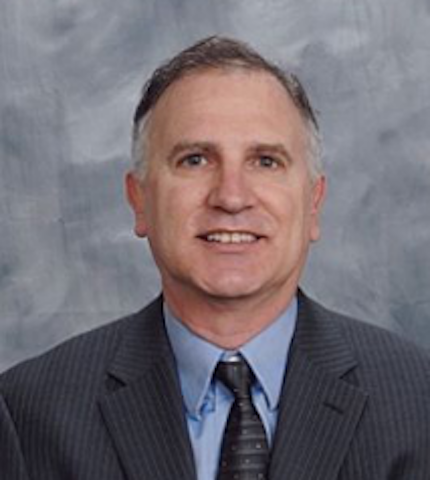 The Health Information Technology for Economic and Clinical Health (HITECH) Act provided providers with a significant financial incentive to increase the adoption and use of EHRs. EHR vendors were required to conduct and report on a summative usability evaluation of their system as part of the Stage 2 Meaningful Use program (The ONC 2014 Edition Certification). However, a recent report funded by the Agency for Healthcare Research and Quality (AHRQ), identified several “issues” with the certified EHR vendors in the processes, practices and use of standards and best practices with regard to usability and human factors.
The Health Information Technology for Economic and Clinical Health (HITECH) Act provided providers with a significant financial incentive to increase the adoption and use of EHRs. EHR vendors were required to conduct and report on a summative usability evaluation of their system as part of the Stage 2 Meaningful Use program (The ONC 2014 Edition Certification). However, a recent report funded by the Agency for Healthcare Research and Quality (AHRQ), identified several “issues” with the certified EHR vendors in the processes, practices and use of standards and best practices with regard to usability and human factors.
EHR usability
See the following -
EHR Tasks Take Up Half of the Primary Care Physician’s Workday
It’s practically become a mantra in healthcare: EHRs take up too much of physicians’ time. But just how much time do doctors spend on EHR-related tasks? A new study out of the University of Wisconsin and the American Medical Association dug deeper. From 2013 to 2016, researchers analyzed 142 family medicine physicians, all of whom used an Epic EHR, at a system in southern Wisconsin. All data was captured via EHR event log data during clinic hours (8:00 a.m. to 6:00 p.m. Monday through Friday) and non-clinic hours...
- Login to post comments
EHR Usability Cause Of Key Pain Points For Healthcare CIOs
EHR adoption is increasing, but EHR usability remains a problem for end-users trying to enter and access data efficiently...
- Login to post comments
EHR Usability Gaps -- ONC and AHRQ Identify Serious Shortcomings of Certified EHRs
- Login to post comments
EHR Usability, Functionality Top Concerns for Half of Hospitals
Community hospitals continue to struggle to get their electronic health records to work and communicate the way they need them to, according to a new report from peer60, with EHR usability, limited functionality, and poor interoperability driving nearly 20 percent of survey respondents into a search for a replacement EHR...
- Login to post comments
EHRs Key To Medication Reconciliation
Electronic health records have a big role to play in improving hospitals' medication reconciliation, a new study finds, but challenges related to data quality, technology and workflow remain...
- Login to post comments
EHRs Not Meeting The Challenges Of Primary Care According To New Study
 "The human mind can do many things well. Digesting vast amounts of patient information while multitasking in time-constrained situations exposes a limitation. EHR technology should be able to complement or enhance physicians' abilities in these scenarios," said Regenstrief Institute Research Scientist April Savoy, PhD, who led the new study. "But current EHRs are overloading primary care physicians with information in disparate files and folders rather than presenting comprehensive, actionable data in a context that gives meaning.
"The human mind can do many things well. Digesting vast amounts of patient information while multitasking in time-constrained situations exposes a limitation. EHR technology should be able to complement or enhance physicians' abilities in these scenarios," said Regenstrief Institute Research Scientist April Savoy, PhD, who led the new study. "But current EHRs are overloading primary care physicians with information in disparate files and folders rather than presenting comprehensive, actionable data in a context that gives meaning.
- Login to post comments
Electronic Health Record Usability Where Art Thou?
 I like to begin my articles with a little humor…no matter how little the humor. I am sure many in the User Interface community might find this joke hilarious. Not so much if you are a physician using an electronic health record (EHR) that does not provide good usability. Lack of EHR usability is one of the biggest complaints clinicians have with some currently available EHRs...So what are some of the pain points associated with EHRs that make them not user friendly? IDC Health completed a survey in 2013 to identify frequent causes of clinician EHR dissatisfaction. Of the seven dissatisfiers identified, four were associated with usability. These were...
I like to begin my articles with a little humor…no matter how little the humor. I am sure many in the User Interface community might find this joke hilarious. Not so much if you are a physician using an electronic health record (EHR) that does not provide good usability. Lack of EHR usability is one of the biggest complaints clinicians have with some currently available EHRs...So what are some of the pain points associated with EHRs that make them not user friendly? IDC Health completed a survey in 2013 to identify frequent causes of clinician EHR dissatisfaction. Of the seven dissatisfiers identified, four were associated with usability. These were...
- Login to post comments
EMR Market Surpasses $23 Billion
The global market for electronic medical records has shot up to $23.2 billion in 2013, according to a new report from research firm Kalorama: EMR 2014: The Market for Electronic Medical Records. Governement incentives and the increasing use of electronic medical records for quality of care and cost-saving reasons continue to drive the market, researchers found.
- Login to post comments
Ensuring Physician EHR Use Doesn’t Lead to Physician Burnout
With the entire healthcare industry undergoing tremendous amounts of change — from how care is coordinated and delivered to how providers are reimbursed for that care — there are likely to be side effects. One the head of the American Medical Association (AMA) is targeting is the matter of physician burnout tied to providers having to balance the day-to-day realities of patient care with federal and state mandates regulating aspects of that care such physician EHR use and clinical quality reporting...
- Login to post comments
Former ONC Leaders Cite Challenges in Maximizing EHR Benefits
Four former national coordinators for health information technology have penned a perspective on achievements made in using electronic health records under the HITECH Act and where providers and the HIT industry still must go to continue past progress. The law spurred rapid progress toward digitizing the industry, which now is at an inflection point, say the authors, who include Vindell Washington, MD, Karen DeSalvo, MD, Farzad Mostashari, MD, and David Blumenthal, MD. EHRs have primed the industry to now achieve several positive results, including improving clinical guidelines, and sharing patient data seamlessly and securely...
- Login to post comments
Halamka's 2016 Predictions for Health IT
 As the year ends and we archive the accomplishments and challenges of 2015, it’s time to think about the year ahead. Will innovative products and services be social, mobile, analytics, and cloud (SMAC)? Will wearables take off? Will clinicians be replaced by Watson? Here are my predictions...Apps will layer on top of transactional systems empowered by FHIR...a better approach is crowdsourcing among clinicians that will result in value-added apps that connect to underlying EHRs via the protocols suggested in the Argonaut Project (FHIR/OAuth/REST). One of our clinicians has already authored a vendor neutral DICOM viewer for images, a patient controlled telehealth app for connecting home devices, and a secure clinical photography upload that bypasses the iPhone camera roll. That’s the future.
As the year ends and we archive the accomplishments and challenges of 2015, it’s time to think about the year ahead. Will innovative products and services be social, mobile, analytics, and cloud (SMAC)? Will wearables take off? Will clinicians be replaced by Watson? Here are my predictions...Apps will layer on top of transactional systems empowered by FHIR...a better approach is crowdsourcing among clinicians that will result in value-added apps that connect to underlying EHRs via the protocols suggested in the Argonaut Project (FHIR/OAuth/REST). One of our clinicians has already authored a vendor neutral DICOM viewer for images, a patient controlled telehealth app for connecting home devices, and a secure clinical photography upload that bypasses the iPhone camera roll. That’s the future.
- Login to post comments
Halamka's Advice to the Trump Administration
 As I've listened to the confirmation hearings for cabinet nominees, I’ve realized that no one with healthcare IT expertise has yet been identified by the transition team. I continue to ask all my colleagues about any contact they’ve had with anyone advising the new administration - so far, no one has been asked anything by anyone related to healthcare IT. At this early time in the administration, it’s important to offer advice as to the priorities ahead for the next few years. What would I recommend to the new administration?
As I've listened to the confirmation hearings for cabinet nominees, I’ve realized that no one with healthcare IT expertise has yet been identified by the transition team. I continue to ask all my colleagues about any contact they’ve had with anyone advising the new administration - so far, no one has been asked anything by anyone related to healthcare IT. At this early time in the administration, it’s important to offer advice as to the priorities ahead for the next few years. What would I recommend to the new administration?
- Login to post comments
Has Meaningful Use Lost Its Utility For Physicians?
Now seems to be the time for physicians to evaluate their participation in the Meaningful Use program. After all, we're on the brink of leaving the carrot-only incentive phase and entering the penalty phase for those providers who don't meet federal requirements.
- Login to post comments
Healthy Skepticism – Jared Sinclair's Critique of HealthKit as Both an iOS Developer and Registered Nurse
Of the many new APIs announced at WWDC this summer, HealthKit has been particularly thought-provoking for me. At the risk of sounding like that guy, I think I have a somewhat priviledged perspective of HealthKit. There can’t be that many former registered nurses who’ve switched to iOS app development and tried to start a healthcare data company.
- Login to post comments
Hospital Nurses Forced To Develop Creative Workarounds To Deal With EHR System Flaws; Outdated Technologies And Lack Of Interoperability, Reveals Black Book
The most instrumental stakeholders of hospital EHR success are undeniably nurses, yet 98% of licensed RN’s agree that they have never been included in hospital technology decisions or design. 13,650 US nurses, a group rarely surveyed as the prime users of inpatient technologies, responded to Black Book’s Q3 2014 EHR Loyalty Poll addressing the difficulties of systems selected by non-clinicians and the impact on patient care...
- Login to post comments